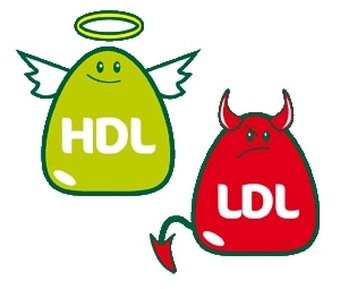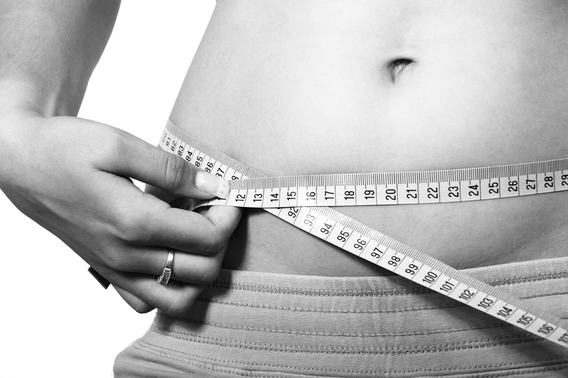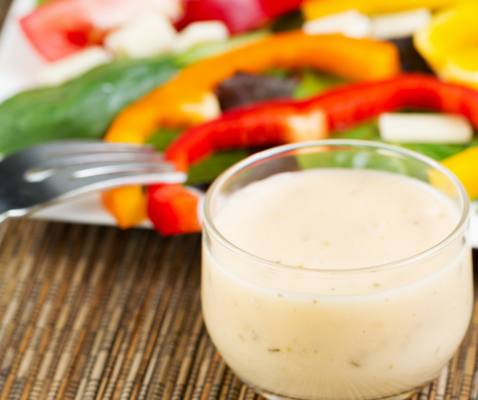|
It is frustrating when you are trying so hard to lose weight, but no loss is reflected on your scale; in fact, it shows you have gained a pound or two. Why does that happen? Believe it or not, this is usually a good weight gain. Of course, if you are eating more then this could be the cause. But if not, you can expect the weight to come off over time, so be patient and stay the course. When first starting an exercise program, your body goes through many changes. One of them is called adaptation. If you have gone from a sedentary lifestyle to an active one now that you are exercising, your body might be storing more glycogen which it uses as energy to fuel your cells. Glycogen is made up of glucose and water. In fact, one-part glucose and three parts water. So what effect can this have on your weight? The average person carries about 15 grams of glycogen per kg of body weight. If we do the math, we see that a 200-pound person would carry about three pounds of glycogen. However, when you bring exercising into the mix, the actual amount of glycogen stored can increase quite a bit which means carrying more weight. As your body adjusts to its new lifestyle, this excess weight will come off. Another part of adaptation that can cause weight gain are the small tears which occur in muscle fibers as a result of exercising. These small tears are called micro-trauma and while small, they cause inflammation in the body. As part of the healing process, blood vessels open up and white blood cells are directed to the affected area. This can cause swelling until the tears are healed. These small tears are what cause you to be sore after your first few exercise sessions. Contrary to popular belief muscle does not weigh more than fat. If you put 5 pounds of fat on a scale and 5 pounds of muscle on another scale to compare, both scales will read 5 pounds. As you lose fat and gain muscle, your weight might actually show more on the scale, but in reality you are getting healthier. The number on the scale is only one indicator you should watch. Most people put way too much faith in that number. It can fluctuate a lot on a daily basis depending on what is going on inside your body. My best advice is continue to eat clean, exercise regularly and be patient, your desired outcome is on its way.
0 Comments
 You knew there was a bit of an over-emphasis (borderlining obsession) about cholesterol, right? Before we jump into some myths let's make sure we're on the same page when it comes to exactly what cholesterol is. Myth #1: “Cholesterol” is cholesterol While cholesterol is an actual molecule what it is bound to while it's floating through your blood is what's more important than just how much of it there is overall. In fact depending on what it's combined with can have opposite effects on your arteries and heart. Yes, opposite! So cholesterol is just one component of a compound that floats around your blood. These compounds contain cholesterol as well as fats and special proteins called “lipoproteins”. They're grouped into two main categories:
And yes, it's even more complicated than this. Each of these categories is further broken down into subcategories which can also be measured in a blood test. So “cholesterol” isn't simply cholesterol because it has very different effects on your body depending on which other molecules it's bound to in your blood and what it is actually doing there. Myth #2: Cholesterol is bad Cholesterol is absolutely necessary for your body to produce critical things like vitamin D when your skin is exposed to the sun, your sex hormones (e.g. estrogen and testosterone), as well as bile to help you absorb dietary fats. Not to mention that it's incorporated into the membranes of your cells. Talk about an important molecule! The overall amount of cholesterol in your blood (AKA “total cholesterol”) isn't nearly as important as how much of each kind you have in your blood. While way too much LDL cholesterol as compared with HDL (the LDL:HDL ratio) may be associated with an increased risk of heart disease it is absolutely not the only thing to consider for heart health. Myth #3: Eating cholesterol increases your bad cholesterol Most of the cholesterol in your blood is made by your liver. It's actually not from the cholesterol you eat. Why do you think cholesterol medications block an enzyme in your liver (HMG Co-A reductase, to be exact)? 'Cause that's where it's made! What you eat still can affect how much cholesterol your liver produces. After a cholesterol-rich meal your liver doesn't need to make as much. Myth #4: Your cholesterol should be as low as possible As with almost everything in health and wellness there's a balance that needs to be maintained. There are very few extremes that are going to serve you well. People with too-low levels of cholesterol have increased risk of death from other non-heart-related issues like certain types of cancers, as well as suicide. Myth #5: Drugs are the only way to get a good cholesterol balance Don't start or stop any medications without talking with your doctor. And while drugs can certainly lower the “bad” LDL cholesterol they don't seem to be able to raise the “good” HDL cholesterol all that well. Guess what does? Nutrition and exercise, baby! One of the most impactful ways to lower your cholesterol with diet is to eat lots of fruits and veggies. I mean lots, say up to 10 servings a day. Every day. Don't worry the recipe below should help you add at least another salad to your day. You can (should?) also exercise, lose weight, stop smoking, and eat better quality fats. That means fatty fish, avocados and olive oil. Ditch those over-processed hydrogenated “trans” fats. Summary: The science of cholesterol and heart health is complicated and we're learning more every day. You may not need to be as afraid of it as you are. And there is a lot you can do from a nutrition and lifestyle perspective to improve your cholesterol level. Orange Hemp Seed Dressing Makes about ¾ cup
½ cup hemp seeds ½ cup orange juice 1 clove of garlic, peeled dash salt and/or pepper Blend all ingredients together until creamy. Serve on top of your favorite salad and Enjoy! Tip: Store extra in airtight container in the fridge. Will keep for about a week. |
Archives
November 2022
Categories
All
|



 RSS Feed
RSS Feed